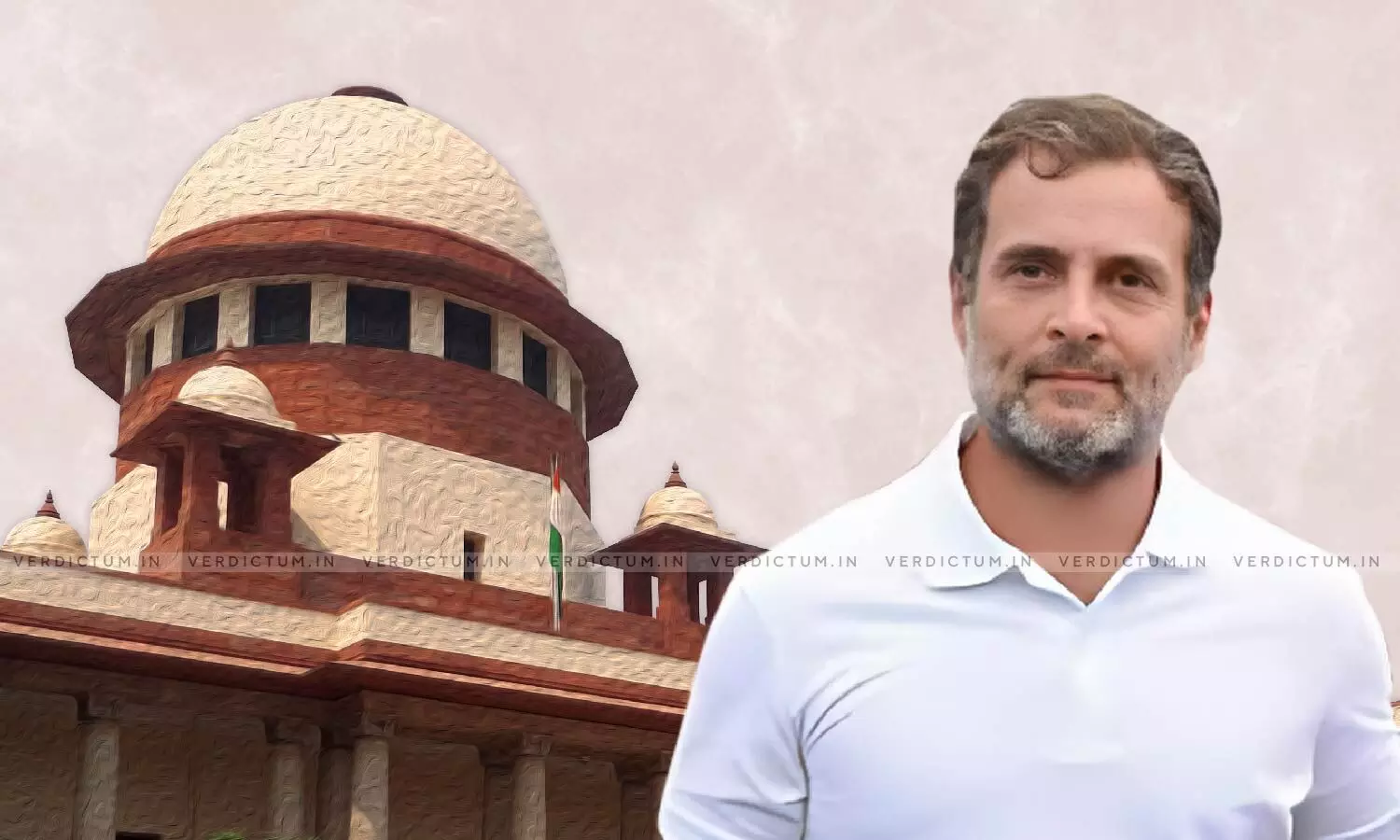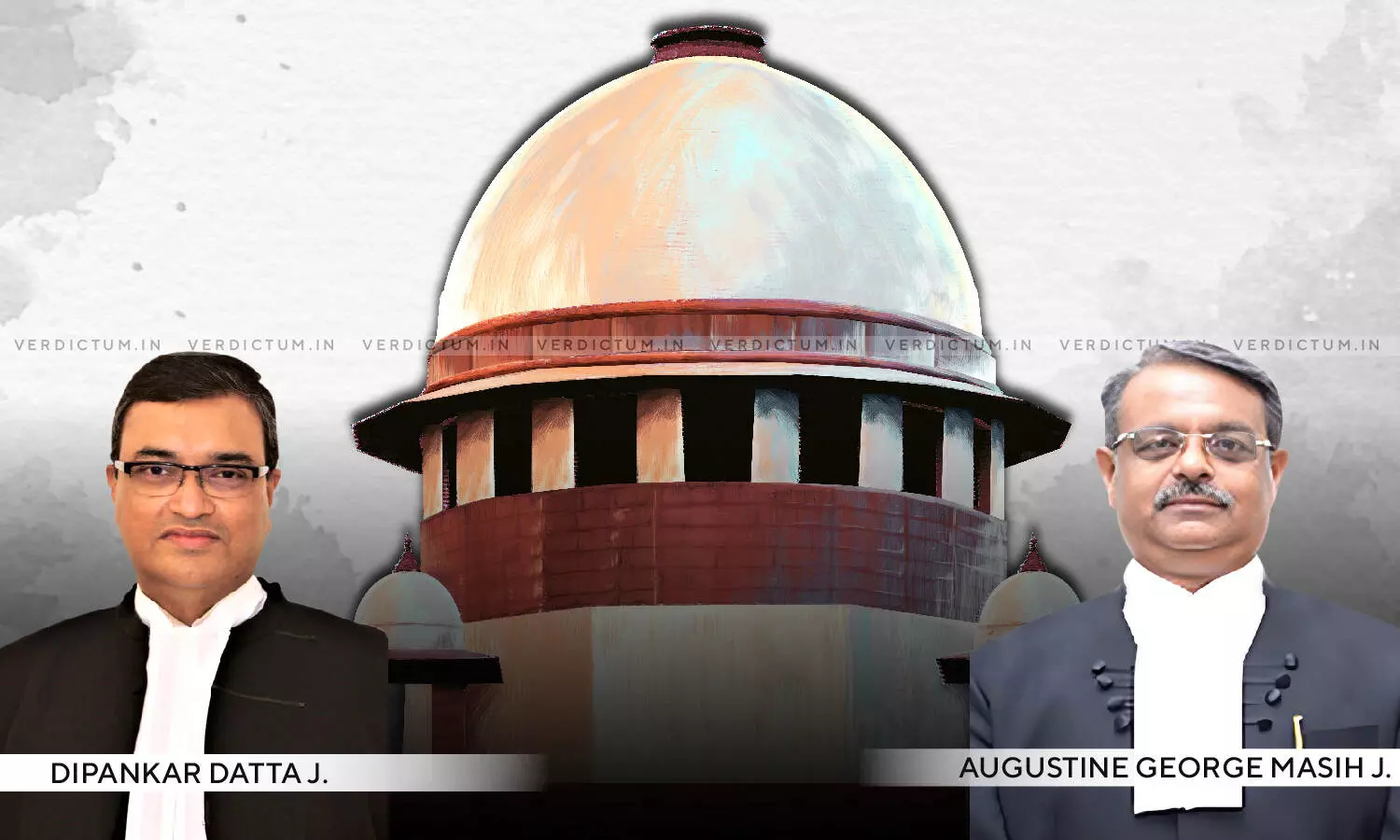
Supreme Court, Rahul Gandhi
Rahul Gandhi's Actions Showed Intent To Spread Hatred And Animosity: UP Govt Tells Supreme Court In Plea To Quash Savarkar Defamation Case
 |
|The Supreme Court today adjourned the matter on the request of the Complainant and Gandhi's Counsel sought time for filing a rejoinder to the counter affidavit filed by the UP Government.
The Supreme Court today adjourned the hearing in a Special Leave Petition filed by Rahul Gandhi seeking quashing of a criminal defamation case initiated over his remarks on V.D. Savarkar, and challenging the orders of the Magistrate and the Allahabad High Court.
The matter came up before a Bench of Justice Dipankar Datta and Justice A.G. Masih. It was adjourned on the request of the Counsel for the Complainant and Gandhi's Counsel sought time to file a rejoinder to the counter affidavit filed by the UP Government. The interim order passed earlier was extended.
In his petition filed through Advocate Prasanna S, Gandhi has contended that the complaint and the Magistrate’s order do not disclose any offence under Sections 153A and 505 IPC. The petition states, “The complaint and Section 200 statements do not disclose any offence under Sections 153A and 505 IPC.” It argues that the Magistrate’s cognisance order is “clearly erroneous and in the teeth of the law settled by this Court”, and that the remarks were part of a political speech, not intended to incite enmity or hatred. It also submits that the continued proceedings “amount to a virtual punishment and a deterrent for the free exercise of his freedoms.”
The Uttar Pradesh Government, in its counter-affidavit, opposes the plea and urges the Court to dismiss it. It contends that the Magistrate’s summoning order was based on sufficient material, including findings from a police inquiry under Section 202 CrPC. “There was sufficient material before the learned Magistrate to issue summons,” the affidavit states.
The affidavit alleges that Gandhi’s speech during the Bharat Jodo Yatra, in which he referred to Savarkar as a “British pensioner” and “British servant”, was intended to provoke resentment. It states, “The petitioner made statements calling Vinayak Damodar Savarkar a ‘British pensioner’ and ‘British servant’ with intent to spread animosity and hatred.”
The State also points out that the remarks were disseminated through prepared handouts, stating, “The petitioner’s actions, including the distribution of pre-printed pamphlets, showed an intent to spread hatred and animosity.”

Claiming emotional harm to the complainant and public disturbance, the affidavit notes, “The complainant suffered mental and physical trauma from these statements, which received prominent newspaper coverage.”
It further alleges that the remarks distorted history, stating, “The thrust of the allegations is the distortion of/twisting of historical facts… with the intention to denigrate the reputation of the freedom fighter who admittedly opposed the British Colonial rule.”
On April 25, 2025, the Supreme Court issued notice and rebuked Gandhi for his remarks. Justice Dipankar Datta had observed, “This is not the way you treat our freedom fighters when you know nothing about the history and geography of India.”
The Court asked, “Does your client know that even Mahatma Gandhi used it… ‘your faithful servant’… while addressing the Viceroy?” and added, “Does your client know that his grandmother, when she was Prime Minister, sent a letter praising the gentleman… the freedom fighter?”
When Gandhi’s counsel, Senior Advocate A.M. Singhvi, submitted that there was no intent to offend, the Court responded, “If the intention is not there, why make such comments?” It warned, “Let him not make these irresponsible statements… any further statement, we will take up suo motu and no question of sanction.”
Cause Title: Rahul Gandhi v. State of Uttar Pradesh & Ors. (SLP (Crl). No. 6196 of 2025)